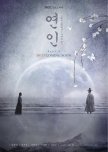This review may contain spoilers
My Dearest – A Tale of Love, War, Identity, and Survival
Set during the Qing invasion of Joseon in the 1600s, My Dearest is more than a historical romance. It’s a harrowing, poetic exploration of what it means to be human when the world is stripped of dignity, hope, and control. Through intimate character arcs and sweeping historical tragedy, it weaves love, loss, betrayal, and resilience into something hauntingly unforgettable.
⸻
War as the Great Equalizer and Destroyer
The backdrop of the Qing invasion is not just a setting — it’s a living force that crashes into the characters’ lives and obliterates every illusion of safety, class, and control. Nobles become slaves. Soldiers become traitors. Citizens become survivors. The war strips everyone bare, revealing the raw truth of who they are when everything else is taken.
“The world has changed. And so have we. But I don’t know if we changed because of the world… or because we had to survive.”
The war exposes the fragility of national pride, the corrupt nature of political loyalty, and the sheer helplessness of the common people caught in the games of kings and emperors. Joseon’s leadership is portrayed as weak and divided, failing to protect its people — a bitter commentary on the cost of blind patriotism and power struggles.
⸻
Love as Resistance, but Not Salvation
Yes, the central love story between Lee Jang-hyun and Yoo Gil-chae is moving — but it’s not romanticized. It’s full of missed chances, trauma, and choices that hurt both of them. What makes their love story so compelling is that it mirrors the chaos of the era: unpredictable, painful, yet rooted in something deeply human.
But love does not save them. And that’s the point.
Instead, love becomes a quiet rebellion — a way to cling to identity, hope, and humanity when everything else is collapsing. It is both a burden and a blessing. The tragedy is not that they fall apart, but that they love so fiercely in a world that doesn’t allow them to be together.
“You became the only thing I wanted in a world that gave me nothing.” – Jang-hyun
“Even when I hated you, I prayed you were alive.” – Gil-chae
⸻
Identity and Transformation
Every character undergoes transformation — not a glow-up, but a breaking-down and rebuilding of the self.
• Gil-chae evolves from a vain, naive noblewoman into a hardened survivor. Her journey is about losing her identity as a “lady” and redefining strength not in status, but in compassion and endurance.
• Jang-hyun, once a man who lived only for himself and “didn’t believe in love,” becomes someone who sacrifices everything, again and again, for a woman and a people who may never understand him.
• Kyung Eun-ae, Gil-chae’s best friend, also goes through profound change — from a timid woman into one who takes painful decisions, shows moral courage, and chooses survival over dignity.
The show constantly asks:
Who are we when no one sees us? Who are we when survival demands we become someone we hate?
⸻
The Burden of Memory and the Cruelty of Hope
As the war ends and the dust settles, what remains is not relief — but trauma. The characters carry the weight of what they saw, what they lost, and what they did to survive.
Jang-hyun’s eventual decision to leave Gil-chae for good, even when she’s finally ready to be with him, is devastating. He’s dying — and he chooses to spare her the burden of watching him fade away. It’s a final act of love, but also an indictment of how tragedy has robbed them of even the right to grieve together.
“I wanted to die in her arms. But that would have made her die with me.” – Jang-hyun’s final words
⸻
Cinematography, Symbolism, and Score
Everything about the production elevates the storytelling:
• Muted tones and natural light reflect the fading innocence and raw reality of war.
• Symbolism is everywhere: water represents both rebirth and distance, letters become vessels of love and regret, and silence often speaks louder than dialogue.
• The soundtrack — particularly “Road to You”, “One and Only”, and “Always Be There” — amplifies the longing and heartbreak without ever overwhelming the scene.
⸻
Final Reflections
My Dearest doesn’t offer a happy ending. It offers something harder: truth. The truth that sometimes, love comes at the wrong time. That war doesn’t end just because the fighting stops. That we may survive, but not whole.
It’s a show about what we hold onto when we have nothing left — and what it costs to keep holding on.
It’s not for the faint-hearted. But for those who watch it, it leaves a quiet ache — the kind that lingers like the memory of someone you once loved in another lifetime.
⸻
War as the Great Equalizer and Destroyer
The backdrop of the Qing invasion is not just a setting — it’s a living force that crashes into the characters’ lives and obliterates every illusion of safety, class, and control. Nobles become slaves. Soldiers become traitors. Citizens become survivors. The war strips everyone bare, revealing the raw truth of who they are when everything else is taken.
“The world has changed. And so have we. But I don’t know if we changed because of the world… or because we had to survive.”
The war exposes the fragility of national pride, the corrupt nature of political loyalty, and the sheer helplessness of the common people caught in the games of kings and emperors. Joseon’s leadership is portrayed as weak and divided, failing to protect its people — a bitter commentary on the cost of blind patriotism and power struggles.
⸻
Love as Resistance, but Not Salvation
Yes, the central love story between Lee Jang-hyun and Yoo Gil-chae is moving — but it’s not romanticized. It’s full of missed chances, trauma, and choices that hurt both of them. What makes their love story so compelling is that it mirrors the chaos of the era: unpredictable, painful, yet rooted in something deeply human.
But love does not save them. And that’s the point.
Instead, love becomes a quiet rebellion — a way to cling to identity, hope, and humanity when everything else is collapsing. It is both a burden and a blessing. The tragedy is not that they fall apart, but that they love so fiercely in a world that doesn’t allow them to be together.
“You became the only thing I wanted in a world that gave me nothing.” – Jang-hyun
“Even when I hated you, I prayed you were alive.” – Gil-chae
⸻
Identity and Transformation
Every character undergoes transformation — not a glow-up, but a breaking-down and rebuilding of the self.
• Gil-chae evolves from a vain, naive noblewoman into a hardened survivor. Her journey is about losing her identity as a “lady” and redefining strength not in status, but in compassion and endurance.
• Jang-hyun, once a man who lived only for himself and “didn’t believe in love,” becomes someone who sacrifices everything, again and again, for a woman and a people who may never understand him.
• Kyung Eun-ae, Gil-chae’s best friend, also goes through profound change — from a timid woman into one who takes painful decisions, shows moral courage, and chooses survival over dignity.
The show constantly asks:
Who are we when no one sees us? Who are we when survival demands we become someone we hate?
⸻
The Burden of Memory and the Cruelty of Hope
As the war ends and the dust settles, what remains is not relief — but trauma. The characters carry the weight of what they saw, what they lost, and what they did to survive.
Jang-hyun’s eventual decision to leave Gil-chae for good, even when she’s finally ready to be with him, is devastating. He’s dying — and he chooses to spare her the burden of watching him fade away. It’s a final act of love, but also an indictment of how tragedy has robbed them of even the right to grieve together.
“I wanted to die in her arms. But that would have made her die with me.” – Jang-hyun’s final words
⸻
Cinematography, Symbolism, and Score
Everything about the production elevates the storytelling:
• Muted tones and natural light reflect the fading innocence and raw reality of war.
• Symbolism is everywhere: water represents both rebirth and distance, letters become vessels of love and regret, and silence often speaks louder than dialogue.
• The soundtrack — particularly “Road to You”, “One and Only”, and “Always Be There” — amplifies the longing and heartbreak without ever overwhelming the scene.
⸻
Final Reflections
My Dearest doesn’t offer a happy ending. It offers something harder: truth. The truth that sometimes, love comes at the wrong time. That war doesn’t end just because the fighting stops. That we may survive, but not whole.
It’s a show about what we hold onto when we have nothing left — and what it costs to keep holding on.
It’s not for the faint-hearted. But for those who watch it, it leaves a quiet ache — the kind that lingers like the memory of someone you once loved in another lifetime.
Was this review helpful to you?





















